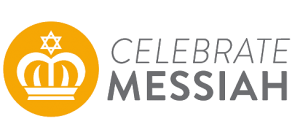We currently live in a time when most of our generation holds post-modern beliefs. This is different from the mentality of the Baby Boomers and even of Generation X. One of the key beliefs of post-modernism is ethical relativity. Rather than understanding that absolute truth exists in this world, post-modernism believes that truth is relative because people believe different things. The theory is that if you believe one thing and another person believes something else, they are both truth as long as your belief is not intolerant.
Why is this important? Because it makes God relative, too. It makes the work of Yeshua (Jesus) relative – effective for some people, but not for others who choose not to believe it. So my question is this: do you really believe in absolute truth? Do you believe that God is going to do what He said He would do in the Bible?
Absolute truth is sort of like a given in life. Our need for food, water, and oxygen to survive is a given, and an absolute truth. But from the perspective of relativism, if someone didn’t believe they needed oxygen to survive, they would be right – because nobody can be wrong.
The reason this issue is so important is because either God is who He says He is in the Bible or He is not. God cannot be both, because that would make Him a liar. If He is a liar, then that contradicts His holiness. God’s holiness says that He is devoid of sin, cannot lie, and is perfect. Either man has sinned and needs atonement, or else the concept of holiness doesn’t matter. Can both of these contradicting ideas be right at the same time?
When speaking with someone in their 20’s about God and Yeshua, they may say that they believe everything in the universe is connected, or that there are many ways to God, or that other faiths are all different ways to get to the same paradise. There are many variations to this conversation, but the common denominator is that these people will not take a definitive position because of one of three reasons: 1) they don’t want to offend anybody, so anybody’s opinion is ok; 2) they are sitting on the fence and don’t want to think about more serious subjects; or 3) they truly believe this.
This is not what I believe. I believe that only God is perfect. I believe that man has sinned against Him and that we need to be forgiven. I believe that the only way to the one and only God, the God of the Bible, is through the work of Yeshua. Not only does the Bible attest to these things, but my own life experiences do also. I find that when I truly believe and act on the things that God has said in His word, He works in my life.
This provides a tremendous challenge to the growth of the church in western society. If there is no absolute truth, who cares what God says or requires? The fact is that if given a choice between sin and dedication to God, most would choose sin. Without God, nobody would choose Him. Our sinful natures predispose us to choose anything else over God, unless He intervenes in our life.
Ask yourself these two questions: 1) Do I believe that Yeshua is the only way to the Father? (John 14:6 Jesus said to him, “I am the way, and the truth, and the life. No one comes to the Father except through me.”) 2) If so, how do I communicate my belief to people who do not believe that absolute truth exists? For the answer to the second question, I would strongly recommend the book The Reason for God by Pastor Timothy Keller. This book is incredible in laying out the reasons to believe in God and His ways, and it is not difficult to read. Some of the reasons discussed are logical, others are scientific, and by the end of the book all of the evidence points to an overwhelming conclusion that God exists, and more specifically the God of the Bible.
Is God relative? Or is He almighty? Can there be contradicting truths? Or is Yeshua the only way? As for me, I believe Yeshua is the only way and God is who He states He is in the Bible. I want to make it my mission to help others see the freedom He can give them.


